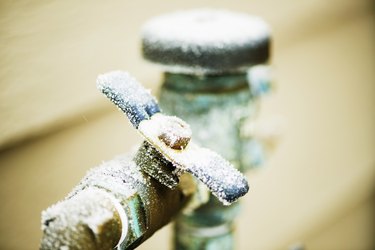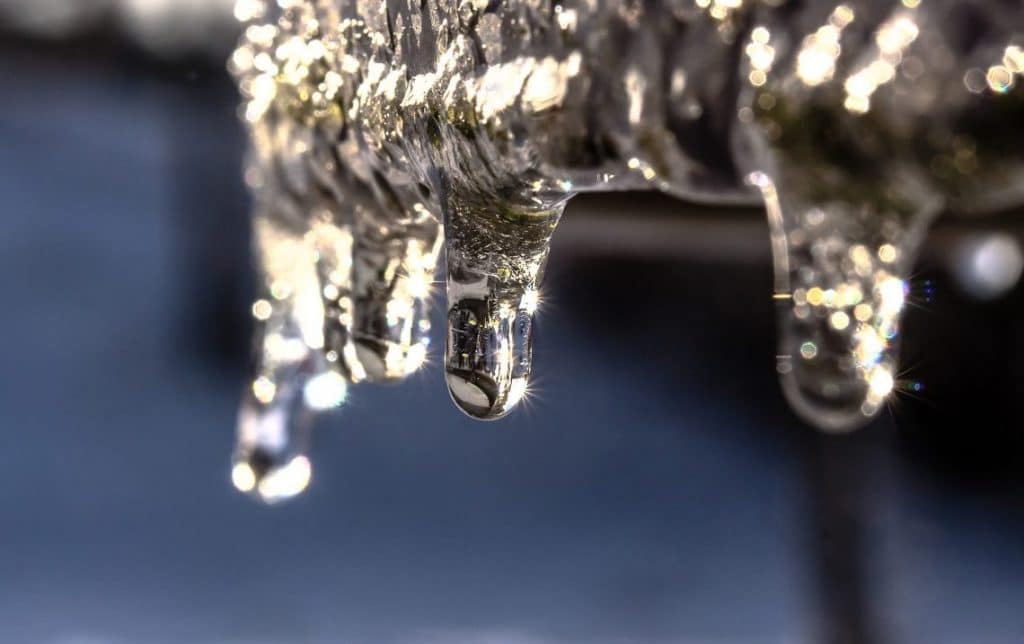Tips to Prevent Frozen Plumbing in Winter: Expert Tips
Tips to Prevent Frozen Plumbing in Winter: Expert Tips
Blog Article
This article in the next paragraphs pertaining to Winter Plumbing Precautions: Preventing Frozen Pipes is unquestionably enjoyable. Don't miss out on it.

Winter can ruin your pipes, particularly by freezing pipes. Here's just how to avoid it from taking place and what to do if it does.
Introduction
As temperatures decrease, the danger of frozen pipes increases, potentially leading to costly repair work and water damage. Understanding how to stop frozen pipes is vital for house owners in cold climates.
Recognizing Frozen Pipes
What causes pipelines to freeze?
Pipelines ice up when subjected to temperatures listed below 32 ° F (0 ° C) for expanded periods. As water inside the pipes freezes, it expands, taxing the pipe wall surfaces and possibly creating them to break.
Risks and damages
Icy pipes can lead to water system disruptions, residential property damages, and expensive repair services. Ruptured pipelines can flood homes and trigger extensive structural damage.
Signs of Frozen Piping
Identifying icy pipelines early can avoid them from rupturing.
Exactly how to identify frozen pipelines
Search for reduced water flow from taps, uncommon smells or sounds from pipelines, and noticeable frost on subjected pipelines.
Prevention Tips
Protecting at risk pipes
Cover pipes in insulation sleeves or use heat tape to protect them from freezing temperatures. Focus on pipes in unheated or outside areas of the home.
Home heating techniques
Keep indoor rooms adequately warmed, especially areas with plumbing. Open cabinet doors to allow cozy air to distribute around pipelines under sinks.
Securing Outdoor Pipes
Garden hoses and exterior faucets
Detach and drain garden hose pipes before wintertime. Install frost-proof faucets or cover outside taps with protected caps.
What to Do If Your Pipes Freeze
Immediate actions to take
If you presume frozen pipelines, maintain faucets available to ease pressure as the ice thaws. Use a hairdryer or towels soaked in hot water to thaw pipes slowly.
Long-Term Solutions
Structural adjustments
Think about rerouting pipes far from exterior wall surfaces or unheated areas. Add additional insulation to attic rooms, cellars, and crawl spaces.
Updating insulation
Purchase high-grade insulation for pipelines, attic rooms, and walls. Appropriate insulation aids keep regular temperatures and reduces the risk of icy pipelines.
Final thought
Preventing frozen pipelines needs aggressive steps and quick responses. By recognizing the causes, signs, and preventive measures, property owners can safeguard their pipes throughout cold weather.
Helpful Tips to Prevent Frozen Pipes this Winter
UNDERSTANDING THE BASICS: WHY PIPES FREEZE AND WHY IT’S A PROBLEM
Water freezing inside pipes is common during the winter months, but understanding why pipes freeze, and the potential problems it can cause is crucial in preventing such incidents. This section will delve into the basics of why pipes freeze and the associated problems that may arise.
THE SCIENCE BEHIND FROZEN PIPES
When water reaches freezing temperatures, it undergoes a physical transformation and solidifies into ice. This expansion of water as it freezes is the primary reason pipes can burst. As the water inside the pipe freezes, it expands, creating immense pressure on the walls. If the pressure becomes too great, the pipe can crack or rupture, leading to leaks and water damage.
FACTORS THAT CONTRIBUTE TO PIPE FREEZING
Low Temperatures: Extremely cold weather, especially below freezing, increases the risk of pipes freezing. Uninsulated or Poorly Insulated Pipes: Pipes located in unheated areas, such as basements, crawl spaces, or attics, are more prone to freezing. Insufficient insulation or lack of insulation altogether exacerbates the problem. Exterior Wall Exposure: Pipes running along exterior walls are susceptible to freezing as they encounter colder temperatures outside. Lack of Heating or Temperature Regulation: Inadequate heating or inconsistent temperature control in your home can contribute to frozen pipes. PROBLEMS CAUSED BY FROZEN PIPES
- Pipe Bursting: As mentioned earlier, the expansion of water as it freezes can cause pipes to burst, resulting in significant water damage.
- Water Damage: When pipes burst, it can lead to flooding and water damage to your property, including walls, ceilings, flooring, and personal belongings.
- Structural Damage: Prolonged exposure to water from burst pipes can compromise the structural integrity of your home, leading to costly repairs.
- Mold and Mildew Growth: Excess moisture from water damage can create a favorable environment for mold and mildew growth, posing health risks to occupants.
- Disrupted Water Supply: Frozen pipes can also result in a complete or partial loss of water supply until the issue is resolved.
WHY CERTAIN PIPES ARE MORE PRONE TO FREEZING
- Location: Pipes located in unheated or poorly insulated areas, such as basements, crawl spaces, attics, or exterior walls, are at higher risk of freezing.
- Exterior Pipes: Outdoor pipes, such as those used for irrigation or exposed plumbing, are particularly vulnerable to freezing as they are directly exposed to the elements.
- Supply Lines: Pipes that carry water from the main water supply into your home, including the main water line, are critical to protect as freezing in these lines can affect your entire plumbing system.
- Underground Pipes: Pipes buried underground, such as those connected to sprinkler systems or outdoor faucets, can be susceptible to freezing if not properly insulated.
https://busybusy.com/blog/helpful-tips-to-prevent-frozen-pipes-this-winter/

I stumbled upon that entry about How To Avoid Freezing Pipes when surfing around the web. Enjoyed reading our piece of writing? Please share it. Help other people find it. We recognize the value of your readership.
Book Inspection Report this page